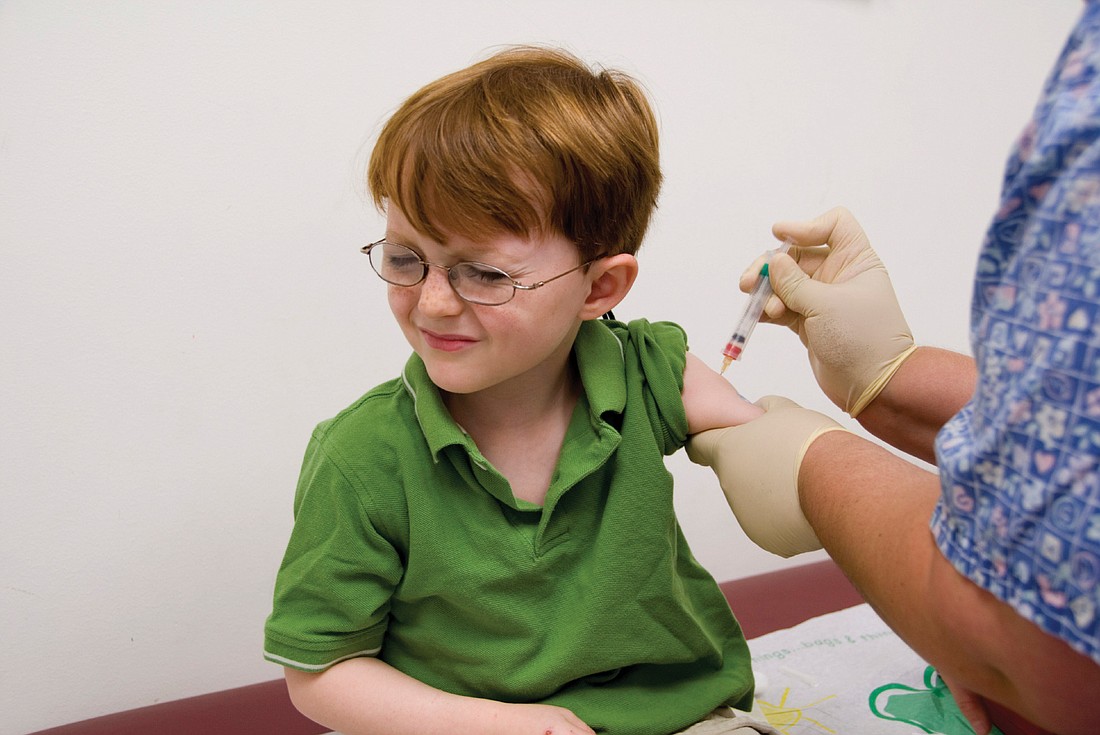- April 19, 2024
-
-
Loading

Loading

Since 2008, the rate of parents choosing to not vaccinate their children for non-medical reasons in Orange and Seminole counties has been creeping up. That’s caused some alarm in the medical community about rare and dangerous diseases making a comeback.
ABC News reports multiple outbreaks of measles cases in New York City, with the New York Department of Health urging parents to bring un-vaccinated children in to be inoculated to prevent the highly contagious disease's spread.
In Florida, parents must obtain a medical exemption from their doctor to avoid having their children vaccinated — most of the time because of an allergic, life-threatening reaction to the vaccine — or they can ask for a religious exemption.
A 2012 study that examined the vaccine exemption policies across the country, led by Saad Omer, a professor of public health at Emory University, determined that Florida is a “difficult” state to get an exemption from the government-mandated vaccines to attend school for medical reasons. But in Florida, bills in the past few years have been introduced and passed that make it easier for parents to opt out of vaccinating children.
Religious exemptions — among the easiest ways for parents to opt out of vaccinations — have continually increased from nearly zero of those exempt in 1997 to 3 percent of Seminole County kindergarteners, the highest yet.
Obtaining an exemption isn’t difficult; If parents request exemption at the health department based upon their religion, the health department will give it to them. While employees give parents information showing the scientific health benefits of the vaccines, most already have their minds made up, said Bertie Barber, immunizations program manager for the Seminole County Health Department.
That non-medical exemption leaves children and the public at risk of contracting completely avoidable, life-threatening diseases, said Dr. Julee Waldrop, a clinical associate professor at UCF.
“Generally the reason that I hear is that they just don’t believe that their child needs it, that these diseases are not common, and that if everyone else is getting vaccinated that they’ll be protected and the side effects are too great a risk,” Waldrop said.
For more information about vaccines and Florida school requirements, visit http://www.floridahealth.gov/prevention-safety-and-wellness/immunization/ or call your local health department.
The rate of parents claiming that enough children are already vaccinated has historical merit. The Centers For Disease Control and Prevention reported that the percentage of vaccinated seventh-graders has increased more than 30 percentage points since 1997 and both have a vaccination rate of more than 90 percent, though kindergartener vaccination levels have dipped lower since 2008.
But the reaction of parents to opt out because most children are immunized can backfire rapidly, Waldrop said, when many parents then choose to opt out in a short period of time.
“The problem occurs when in a given population the percentage of people who choose not to be immunized becomes greater.”
In that case, “herd immunity” is lost, meaning that the population that is vaccinated is large enough to stop a disease from spreading, protecting those who aren’t vaccinated. There haven’t been any outbreaks in Central Florida because of this, but if the trend continues to grow and more parents choose not to vaccinate their children, it’s definitely a possibility, Barber said.
“If the trend continues, though, what we’re going to discover is we’re going to begin to see resurgences of some of those childhood diseases, and that’s because it isn’t eradicated everywhere else in the world and Florida especially is a very international state,” Barber said. “Until we see some detrimental impacts, I don’t think that people are really going to understand the importance of having those vaccines.”
So infants who aren’t old enough to be vaccinated, children who haven’t had all their vaccinations yet, and those medically compromised are put in danger. In some states, the impact has already been seen. California saw an outbreak in 2010 of pertussis that affected 9,000 people and killed 10 infants.
It’s a high price to pay for your philosophies, Barber said.
But cases like the one in California could raise awareness and cause laws to get tougher against vaccine exemptions, Waldrop said.
“I think it’s possible that it might become harder because there has been an increase in the number of outbreaks, and so the more people that are actually harmed because of lack of immunizing, the more likely it is that public health officials and states will make laws to protect the public,” she said.
There are also new medical advancements to consider, which could add even more vaccines for students to complete before starting school.
“If anything, the requirements will continue to increase,” said Patty Caulfield, lead school board nurse for Seminole County Public Schools. “Because right now there are still a lot of vaccines that are beneficial to children that are not required.”